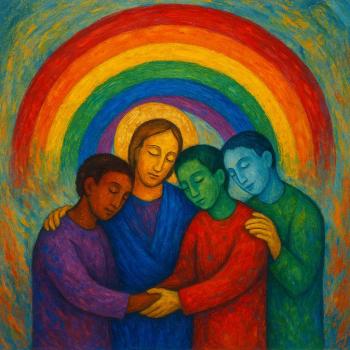
Condemned to Freedom
Humans are bound to two certainties: freedom and death. Jean-Paul Sartre asserts that human existence is freedom. The external world is composed of in-itself being, while consciousness is unique to humans. Consciousness is defined as awareness of being, so human consciousness entails awareness of being human. This means having infinite choices, which Sartre calls freedom.
Freedom does not imply an essence of freedom; man’s existence is intrinsically free. Sartre argues that human freedom precedes essence, allowing limitless choices of action. Even under extreme coercion, a person can choose their actions and attitudes. Thus, humans do not merely possess freedom; they are freedom itself.
God granted us this freedom with love in mind, but as often we do, we made a mess of it. With absolute freedom placed on our shoulders, we constantly face the dilemma of defining ourselves through our choices. This responsibility can lead to what Sartre terms “anguish,” as the enormity of our freedom and the consequences of our decisions loom large. In the quest to navigate this boundless freedom, humans often find themselves in conflict with their own nature and society, struggling to balance individual will with ethical imperatives. The paradox of freedom, then, is that it is both a blessing and a burden, challenging us to live authentically and to confront the inherent uncertainties of existence.
Wesley’s Point of View
John Wesley was adamantly against the Calvinistic idea of predestination; instead, leaning into the idea of free will. If we consider a God who is loving and whose love is uncontrolling, we must consider the gift or the curse of free will. It is another example of how God limited Gods self to show the world how much we are loved, unconditionally. Wesley’s understanding of free will was deeply connected to his view of God’s character. He believed that God’s primary attribute is love, and that a God of love would not arbitrarily choose some for salvation and others for damnation without giving everyone a genuine opportunity to respond.
For John Wesley, while a strong proponent of free will, he felt that free will was enabled by God’s prevenient grace. He believed that while humanity is fallen and unable to save itself, God’s grace restores the capacity for individuals to freely choose to accept or reject salvation. While we have freedom, we need God’s presence to help guide us out of our fallenness.
Spiritual Practices to Counter/Tame Freedom
I am reminded of the spiritual practice of silence to counter untamed freedom. Our divine self dwells in our interior castle. In the world today, we take freedom as a carte blanche ticket to whatever we want to do or say. Yet, this unchecked freedom can lead to chaos and suffering as individuals may exercise their will without regard for the greater good. I understand this intimately as I often deal with a lifetime of suffering in my clients. True freedom comes from being able to tame your mind and your tongue.
Practices such as silence, meditation, and reflection offer a means to harness and direct our freedom towards a more thoughtful and measured existence. I often find myself breathing deeply in session to absorb what my client is saying and how they are saying it. By engaging in these spiritual disciplines, we can reconnect with our divine self, cultivating an inner peace that guides our choices and actions. Embracing silence helps us to listen to the deeper currents of our being, fostering a balance between our personal desires and the ethical demands of society. These practices remind us that true freedom lies not in the absence of constraints, but in the mindful and deliberate application of our will in harmony with our higher purpose.
The Monkey Mind
To find this inner tranquility and to truly taste freedom, you must find it, seek it daily. For me, it has been at this point a lifelong journey. I was pretty terrible in my 20s and up to my mid-30s. My ADHD, specifically the impulsive part of this diagnosis, made a huge mess of things. Returning to the practice of meditation learned so long ago as a teenager, along with some good meds and a healthy dose of running, helped me get back on track. You must “find a space of physical silence where you can sit quietly, away from distracting demands, voices, and sounds. Go there every day. It is the gateway to your interior silence.”
Finally, silence as a practice can lead to personal freedom by allowing individuals to confront their inner thoughts and emotions, ultimately fostering a state of inner stillness and clarity. In therapy, when I teach silent sitting, I often talk to my clients about the monkey mind. Often, this monkey mind can be a hidden self that is not heard when we are engaging in autopilot.
When we engage in practices like meditation helps to silence the mind, enabling a deeper connection with one’s true self and promoting growth and maturity. Here, we learn to temper our freedom with temperance and self-control.
If you are new to mindfulness, it is advisable to start with small practices. Many individuals I encounter claim that mindfulness is ineffective. As someone who has been practicing mindfulness throughout my adult life, I can affirm that it does not fail in its purpose; rather, most people find the act of sitting with their thoughts uncomfortable. Prior to making significant or even minor decisions, allocate 5-10 minutes to sit with your thoughts, breathe deeply, and contemplate the reasons behind your decision. Consider the impact on your life and others’ lives and determine why this decision must be made at this moment.













